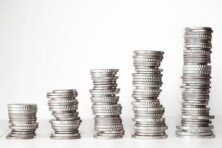The Japanese economic system was on a downward trajectory in January-March of the current year, but in this case, the pace of decline turned out to be less than the initial expectations for the dynamic of the corresponding indicator due to an upward revision of data on capital spending and inventories.

The mentioned result became a kind of fact in favor of the plans of the central bank of the specified Asian country to raise interest rates again in 2024.
Expectations were circulating in the analytical environment that Japan’s economic system would hit bottom in the first quarter of the current year. At the same time, the prospects for the corresponding dynamic for April- June 2024 are not favorable and do not belong to the category of what can be conditionally described as an improvement in the vision of the future. A weak yen, which demonstrates something like a steady presence in the zone of negative indicators, and failures at the production sites of the largest Japanese car makers, significantly reduce the likelihood that the second quarter of the current year will be a move forward compared to the result for January-March.
Kohei Okazaki, senior economist at Nomura Securities, says that the revised gross domestic product (GDP) data allowed the central bank of the Asian country to increase confidence in the realism and expediency of future rate hikes. According to the expert, Japan’s financial regulator can positively assess capital investments that demonstrate favorable dynamic growth, although this process is moderate.
There is a widespread expectation in the expert community that the Bank of Japan will decide to raise interest rates in October.
Japan’s GDP for January-March of the current year showed a decrease of 1.8% compared to the result for the same period in 2023. The relevant information was released by the Cabinet Office of the Asian country on Monday, June 10. It is worth noting that in this case, revised GDP data is implied. Economists surveyed by the media expected the mentioned indicator to fall by 1.9%. Also, the Japanese authorities, as part of the preliminary assessment of the dynamic GDP in the first quarter of 2024, predicted that the corresponding figure would decrease by 2%.
The mentioned revised indicator reflects a 0.5% quarterly decline adjusted for prices.
The revised GDP data were released during a period of active dissemination of information that the financial regulator of the Asian country may discuss cutting the volume of purchases of Japanese government bonds. It is claimed that an appropriate decision may be made as early as this week as part of a review of monetary policy implemented by the Bank of Japan to weaken monetary stimulus to strengthen the yen. It is worth noting that this information is preliminary and has not been commented on at the official level.
Currently, investors are interested in forming an understanding based on relatively reliable signals of when the central bank of an Asian country will raise the cost of borrowing. It is worth noting that in March of the current year, the financial regulator decided to increase interest rates for the first time since 2007. This step was a landmark one, as it marked a shift away from ultra-loose monetary policy.
Kohei Okazaki says that capital spending in Japan increased in the second half of the fiscal year – at the end of March 2024. Also in this context, the expert noted that the current conditions for capital investments are favorable, but caution should be exercised regarding the prospects.
Moreover, Kohei Okazaki said that there is reason to assert that consumer activity in Japan is now on a trajectory that provides for movement toward recovery. According to the expert, the corresponding tendency is due to a significant wage increase, agreed upon at the annual labor talks, and a reduction in income tax, which began in June.
Private consumption, which shares in the structure of the Asian country’s economy exceeds the 50% mark, decreased by 0.7% year-on-year in January-March 2024. This indicator has not changed compared to the preliminary estimate. It is worth noting that in Japan, the rising cost of living has become a factor of negative impact on the financial well-being of households. A decrease in private consumption in the Asian country has been observed for the fourth quarter in a row.
The data released on Monday also showed that external demand, or exports minus imports, reduced Japan’s overall GDP by 0.4% year-on-year in the first quarter of 2024. At the same time, domestic demand knocked off 0.1%.
Toru Suehiro, economist at Daiwa Securities, says that in the context of the current realities, the Bank of Japan has no other choice but to be cautious about the economic outlook.
It is worth noting that weak consumption has already become a cause of concern on the part of the government of the Asian country and the mentioned financial regulator. Currently, the authorities are interested in ensuring that, in terms of volume and scale, such a demand configuration is formed that could withstand sustained inflation.
As we have reported earlier, Japan’s Economy Ministry to Support Country’s Chip Sector.









